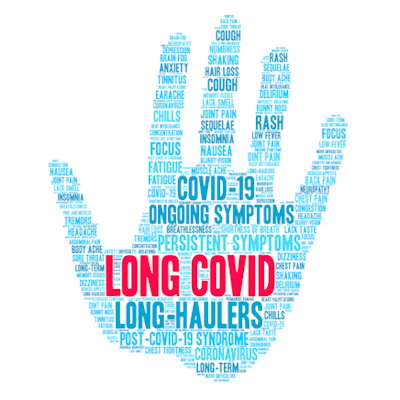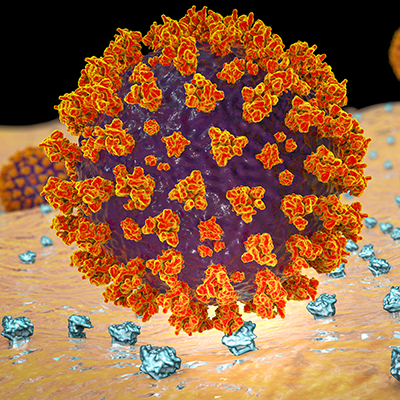December 22, 2022 -- Duke Health scientists and collaborators have discovered an inflammatory mechanism that helps explain COVID-19-related loss of smell, and possibly other long COVID symptoms. The finding, published December 21 in the journal Science Translational Medicine, provides insight into a problem that has plagued millions who have not recovered their sense of smell following COVID-19 infection.
One of the first symptoms typically associated with COVID-19 infection is a reduced ability to detect odor, called hyposmia, or total loss of smell, called anosmia. Fortunately, many people who develop anosmia during the acute phase of viral infection recover within the next several weeks. However, others exhibit olfactory dysfunction that can last months to years. Exactly how SARS-CoV-2 causes anosmia in this subset of patients has remained unclear.
To address this question, researchers analyzed olfactory epithelium -- the tissue in the nose where nerve cells that control smell are located. The samples were collected from 24 biopsies, including nine patients suffering from anosmia following COVID-19. This biopsy-based approach, coupled with single-cell analyses, revealed a widespread infiltration of T cells engaged in an inflammatory response in the olfactory epithelium. This inflammation process persisted despite the absence of detectable SARS-CoV-2 levels. Additionally, the number of olfactory sensory neurons were diminished, possibly due to damage to delicate tissue resulting from inflammation.
The researchers concluded that the ongoing immune assault on olfactory nerve cells, along with the associated decline in the number of those cells, was likely the reason behind the anosmia. They were encouraged to find that neurons appeared to maintain some ability to repair even after the long-term immune assault.
This finding that damage occurs in the olfactory area of the nose is significant, as it enables potential treatments to be directed to this site rather than to the brain. Learning what sites are damaged and what immune cell types are involved may be a key step toward facilitating the development of specific drugs to block this process.
While focusing on the loss of smell, the findings could also shed light on the underlying causes of other long COVID symptoms that might be undergoing similar inflammatory processes triggered by similar biological mechanisms -- including generalized fatigue, shortness of breath, and brain fog. Understanding the types of ongoing immune responses present in long COVID might eventually help to predict which patients could potentially contract long COVID and its related anosmia.
"The findings are striking," said senior author Dr. Bradley J. Goldstein, PhD, associate professor at Duke. "We are hopeful that modulating the abnormal immune response or repair processes within the nose of these patients could help to at least partially restore a sense of smell. We are excited to consider how we can test these treatment strategies, and ultimately bring them to patients."
Copyright © 2022 scienceboard.net












